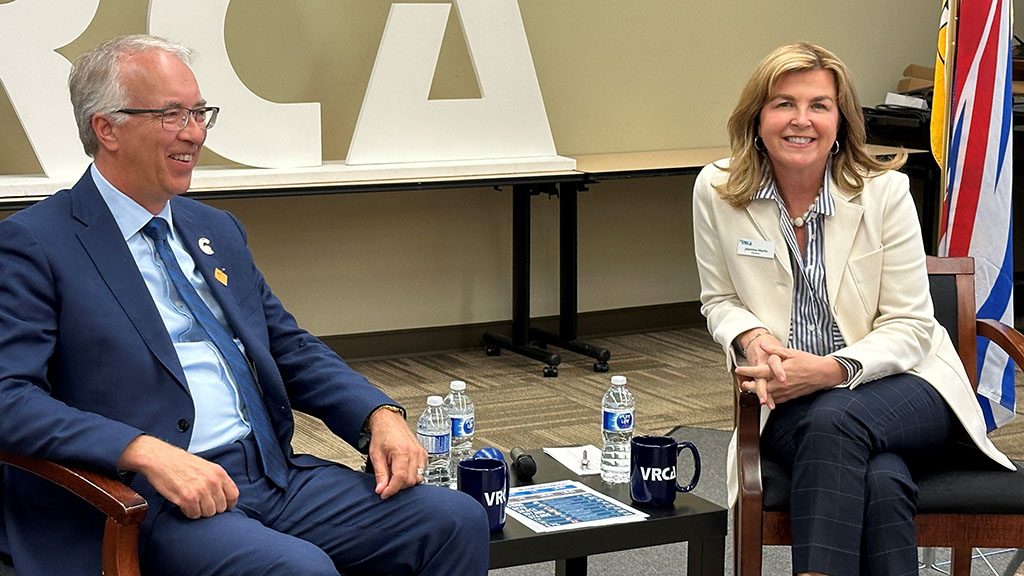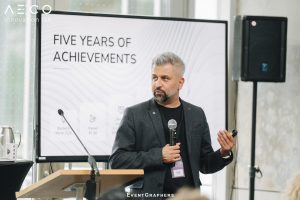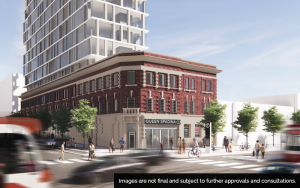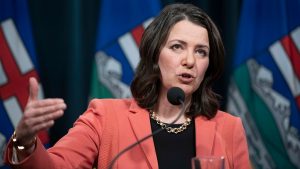VANCOUVER – One of now two remaining contenders vying to lead British Columbia let the province’s construction stakeholders know where he stands on what they build on a volatile day for the province’s political landscape.
BC Conservative leader John Rustad was the third and final guest of the Vancouver Regional Construction Association’s (VRCA) “Constructive Conversations” series highlighting leaders of each of British Columbia’s three leading political parties.
Previous guests of the series were B.C. premier David Eby, who leads the BC NDP party, and Kevin Falcon, the now former leader of BC United.
Hours before the VRCA event on Aug. 28, Falcon announced he was leaving the race along with BC United and that some of the party’s candidates would now run as BC Conservatives.
Rustad said it was hard to say exactly how the situation will play out and that there is still work to do between the two parties but said, “When I think about today, I think the NDP had a very bad day.”
British Columbia Construction Association (BCCA) president Chris Atchison and other stakeholders at the event pressed Rustad for more action on prompt payment legislation, a request that has also been made of Falcon and Eby at the previous VRCA events.
“You get that this is common sense legislation,” Atchison said.
Rustad didn’t commit to specific action on prompt payment but said, “We are in desperate need of doing a whole lot more, (with) a lot of barriers to achieving that.”
He said he wants to encourage mayors to integrate rezoning and densification as part of their community plans as well as coming to the table with “significant dollars for water and sewer upgrades.”
“Every community needs it and there hasn’t been a lot of focus because a politician doesn’t want to stand on a completed sewer line and say, ‘Look what I did,’ but it’s an important part of what needs to be done,” Rustad said.
He added Canada was able to address housing shortages in the 1960s and ‘70s and could do so again, citing the Multi-Unit Residential Buildings (MURB) provision in the federal income tax act which allowed investors to claim depreciation costs of building rental apartments against unrelated income.
Rustad added an improved economy would also encourage migration from other provinces as well as outside of Canada which would aid with an ongoing labour shortage.
“Everyone who came to this province came here because we believe B.C. is a place where you can create a future, and that’s being lost. We have all the resources you could want, all the opportunities, but (we are) hopelessly mismanaged at all levels of government,” he said.
Rustad also focused on large-scale projects and said he wants derisking, which necessitates understanding a project’s entire scope.
“A contractor should have the opportunity to get a project done on time, which saves money. But with so many projects going on right now, we don’t have the capacity for all of them,” he said.
He added the current environmental assessment process means if a pipeline’s permit expires it has to be assessed again before the permit is renewed and “we lose the ability to export gas.”
“We need to get First Nations on sites, build out the sites over time and have new ones coming online so there’s less feast or famine,” Rustad said.
He added when asked about current climate targets aimed at reducing carbon emissions by 2030 that the targets “are all going to go.”
“Not only can’t we achieve the targets but we’d need more electricity to do so,” he said. “We want to utilize electricity if we can but if everyone has a heat pump we need six or seven more Site C plants,” Rustad said.
“We need to look at policies to double food production to address climate change and make sure our infrastructure is more resilient,” he added. “The climate is changing, but the way to address it is not the government saying, ‘Give me more money and I’ll fix the problem.’”











Recent Comments